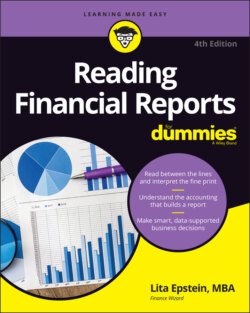Читать книгу Reading Financial Reports For Dummies - Lita Epstein - Страница 62
Dodd-Frank’s impact on financial industry regulation
ОглавлениеAnother major piece of legislation passed by Congress after the 2008 financial crisis is the Dodd-Frank Wall Street Reform and Consumer Protection Act of 2010. This act sought to restore stability and oversight in the financial industry with the hopes of preventing a repeat of that crisis.
The law was written by two of its namesakes, former Senator Chris Dodd and former Representative Barney Frank. Its key provisions protect U.S. consumers and investors by
Forming the Financial Stability Oversight Council (FSOC), whose primary responsibility is to keep banks and other financial firms from becoming “too big to fail.”
Mandating stress tests run by the Federal Reserve to more carefully monitor the largest banks and financial institutions and giant insurance companies. The annual tests make sure very large institutions are prepared for future financial crises. If a bank doesn’t pass the test, the Federal Reserve can suspend share buybacks or put a cap on dividends to ensure that the bank remains strong enough so it can lend to struggling businesses and survive hard times.
Creating the Consumer Financial Protection Bureau (CFPB), which is intended to protect consumers from risky or abusive financial products. This bureau can regulate companies that sell financial products to consumers and enforce laws against discrimination in consumer finance.
Creating the Volcker Rule to prevent banks from engaging in speculative trading activities. This rule was named after Federal Reserve Chairman Paul Volcker. Prior to this rule, and leading up to the financial crisis of 2008, banks were creating and then trading highly risky derivatives, most of which became huge liabilities that bankrupted entire financial institutions. American International Group (AIG) was one of the most notorious (see the nearby sidebar “What Led to Dodd-Frank?”). Under this rule, banks can only trade when it’s necessary to run their business, such as currency trading or working to support an agent, broker, or custodian for their customers’ funds.
Providing for the regulation of derivative trading by the SEC. These are contracts between two parties to exchange financial assets, which can include bonds, commodities, currencies, interest rates, market indexes, or stocks. Regulators have the power to identify risks in the trades and take action before they trigger a financial crisis.
Requiring hedge funds to register with the SEC. In addition, hedge funds must provide critical information about their trades and portfolios to the SEC, so it can then assess their overall risk.
Creating the SEC Office of Credit Ratings (OCR), which oversees credit ratings agencies, such as Standard & Poor’s and Moody’s. These credit ratings agencies rank the safety of bonds and impact bond purchase decisions by brokers and individuals.
